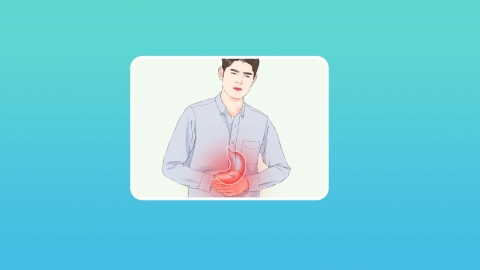How serious is gastrointestinal bleeding, and what are the consequences?
Generally, gastrointestinal bleeding refers to bleeding caused by rupture of the gastric mucosa or blood vessels. If the bleeding volume is small and the bleeding rate is slow, the situation is usually not severe. However, if the bleeding volume is large and the bleeding rate is fast, the condition can be very serious. Possible consequences include myocardial infarction, infection, nausea and vomiting, anemia, and hemorrhagic shock. Detailed explanations are as follows:

1. Myocardial Infarction
Gastrointestinal bleeding leads to significant blood loss, reducing the water and plasma components in the blood, thereby increasing blood viscosity. Elevated blood viscosity affects circulation, slows blood flow, and increases the likelihood of blood clot formation within blood vessels. Coronary arteries supply blood to the heart muscle; if a blood clot forms and blocks a coronary artery, it can trigger a myocardial infarction.
2. Infection
Following gastrointestinal bleeding, the normal physiological environment of the gastrointestinal tract is disrupted, and the intestinal mucosal barrier function becomes impaired. Intestinal bacteria may easily enter the bloodstream through the damaged mucosa, causing bacteremia or sepsis. Significant blood loss can also lead to a decline in immune function, weakening the body's resistance to pathogens and increasing the risk of various infections, such as pulmonary infections or urinary tract infections.
3. Nausea and Vomiting
During gastrointestinal bleeding, accumulated blood in the stomach irritates the gastric mucosa, causing gastric spasms and discomfort, which leads to nausea and vomiting. Additionally, the bleeding may affect normal peristalsis of the gastrointestinal tract, further exacerbating symptoms of nausea and vomiting. Gastrointestinal bleeding is a serious physiological stress event that activates the body's stress response system, leading to dysfunction of the nervous and endocrine systems, and causing gastrointestinal symptoms such as nausea and vomiting.
4. Anemia
Gastrointestinal bleeding results in the loss of a large number of red blood cells, reducing the number of red blood cells and hemoglobin concentration in the blood, thereby causing anemia. Long-term gastrointestinal bleeding may impair the absorption of essential nutrients for blood production, such as iron, folic acid, and vitamin B12 in the gastrointestinal tract, leading to deficiencies in these substances and further worsening of anemia. Patients may experience symptoms such as pallor, dizziness, fatigue, palpitations, and shortness of breath, significantly affecting their quality of life and work capacity.
5. Hemorrhagic Shock
Gastrointestinal bleeding leads to massive blood loss, resulting in a sharp decrease in effective circulating blood volume. The reduction in effective circulating blood volume decreases the cardiac pre-load, reduces cardiac output, and lowers blood pressure. As blood pressure drops, microcirculation perfusion becomes insufficient, depriving tissues and organs of adequate oxygen and nutrient supply, resulting in metabolic disturbances and organ dysfunction. Simultaneously, blood stasis within the microcirculation further aggravates tissue hypoxia and acidosis.
Patients with gastrointestinal bleeding need to seek medical attention promptly and receive active treatment measures, such as blood transfusion, fluid resuscitation, administration of hemostatic drugs, and treatment of the underlying disease. Additionally, patients should pay special attention to their diet in daily life, avoiding spicy, irritating, hard, or coarse foods, such as chili peppers, nuts, and sugarcane. Moreover, timely cessation of smoking and alcohol consumption is also important to promote recovery from the disease.










